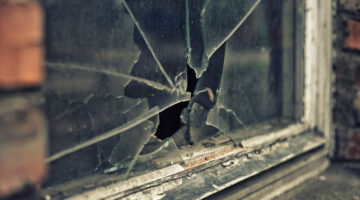I have to leave a house unoccupied for a while. Is that going to cause problems with my insurance?
In the eyes of an insurer, a vacant home is simply a higher risk. For example, cold weather could cause water pipes in a vacant home to freeze and burst and no one would notice for days or weeks. By the time someone does realize what's happening and shuts off the water, the damage could easily have climbed to five figures. Vacant homes are also more likely to be vandalized or broken into (if it has, see Has Your Home Been Robbed or Vandalized? to learn what to do next).
So, the quick answer is yes, leaving your home vacant for an extended period of time will cause problems with your insurance coverage. But before we get into the nitty gritty, let's talk about what companies mean when they talk about vacant homes.
In insurance, there are actually two kinds of unattended homes:
- Vacant home: the normal occupants have left and do not intend to return
- Unoccupied home: a home that lacks habitual human presences
But for practical purposes, both are treated in about the same way by your insurance company.
Most standard homeowner's insurance policies contain an exclusion for damage to a dwelling or its contents while the dwelling has been vacant for more than 30 consecutive days. In other words, after 30 days, you have effectively no coverage.
If you need to leave your home vacant for more than 30 days, contact your broker. They can arrange for something called a vacancy permit. This would cost you an additional fee but it would reinstate basic protection against things like fire or windstorm (thought it would still exclude high-risk perils like water escape or theft).
For vacancies lasting fewer than 30 days, you may still have coverage from your insurance company but it would be limited. They would typically exclude any damage for vandalism, theft, water escape, or glass damage.
So, in short, your insurance coverage will be reduced if your home is left unoccupied. Even with a vacancy permit, you won't have the kind of protection you would if it were regularly occupied. Still, it beats going without any coverage whatsoever.
Written by Insuranceopedia Staff

More Q&As from our experts
- How bad does the damage have to be for my home insurance to cover vandalism?
- Are there any exclusions in vandalism and malicious mischief (VMM) insurance policies?
- How should I insure a vacant building?
Related Terms
Related Articles

The Future of Insurtech: How Technology is Transforming the Insurance Industry

Understanding EPO Health Insurance Plans
Stay informed with Insuranceopedia!
The world of insurance can be complicated. Subscribe to the Insuranceopedia newsletter and stay in the know! Access expert content, industry term definitions and answers to your questions from knowledgeable insurance insiders. Arm yourself with what you need to know to keep your assets and your family safe.


